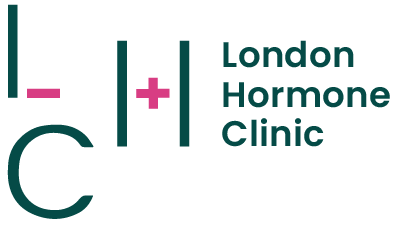Constantly Fighting Fatigue? You Shouldn’t Be.
Exhaustion is something we all experience from time to time. Lack of sleep, illness, and stress are just some of the reasons we feel fatigued but throw in hormone imbalance and the feeling is like nothing else. For some women, it leaves them bedridden, their plight often compounded by painful periods, whilst those who do manage to continue their daily routine struggle to keep going, adding to their sense of frustration and failure.
“I honestly can’t function,” says Kamina, tears welling up in her eyes. “Remember when you were pregnant, those sleepless nights with a newborn? That’s nothing compared to this. It’s awful. I feel like I’m wading through treacle, I’m short-tempered, highly emotional, and I’m not getting anything meaningful done at home, or at work.”
Nadine can completely relate. “It was like things changed overnight. I couldn’t get to sleep, woke up what seemed like minutes later, and this went on all night, and every night after that. I’m on my knees and no matter what I do – lavender baths, pillow sprays, no alcohol, no sugar, no dairy… nothing seems to help. It’s absolute torture and I just need it to stop.”
For Saz, a keen runner, the fatigue was most noticeable when she exercised. I used to run marathons, 10K was part of my morning routine, but things changed, and quickly. I’m now struggling with joint pain, finding it hard to sleep, and I’ve lost my motivation. Running has become an endurance test, instead of my daily dopamine hit.”
Kamina, Nadine, and Saz are not alone. Their experiences are all too common amongst women, for whom exhaustion has become an accepted part of life, when it absolutely shouldn’t be.
The causes of fatigue differ throughout life
Most women can relate to that feeling – just days before their period – when tiredness creeps in and refuses to go away. Exercise doesn’t seem to help in the way it usually does, and intense sugar cravings only serve as a quick-fix energy boost. The reason this cyclical fatigue happens is high levels of oestrogen within the body, without sufficient progesterone to balance it out. For most women, this PMS is a passing occurrence, but for some, it’s debilitating, compounded by intense pain for weeks at a time.
Peri-menopausal and menopausal women experience a different type of exhaustion, characterised by both physical and mental fatigue. Multi-tasking becomes impossible, ‘brain-fog’ a reality, and the once super-organised feel they become a shadow of their former selves. At this point, it’s not just about oestrogen and progesterone, there are multiple causes and it’s important to look at each one in turn.
Testosterone
Levels of testosterone typically fall when a woman hits her mid to late forties. And, as testosterone is incredibly important for energy and stamina, muscle strength and cognitive function, it’s clear to see why low levels have such a detrimental impact and can cause intense fatigue.
Dhea
Dehydroepiandrosterone is a hormone that’s made in the adrenal gland. It’s for energy, get up and go, and motivation. Levels of Dhea peak in early adulthood and decline gradually as we age, so levels need to be topped up to increase energy and boost wellbeing.
Thyroid
The thyroid gland is the body’s regulator and energiser, and levels of thyroid hormones decline for various reasons including autoimmune Hashimoto’s disease, and also after menopause. Many of us simply adapt to having less of it, which is why people with underactive thyroid are often diagnosed late, but, when levels are corrected, energy and metabolism are improved.
Melatonin
This is a hormone the brain produces in response to darkness to control circadian rhythms (your internal body clock). As we age, our ability to produce melatonin declines and that’s why older people tend to sleep less. Low levels of melatonin result in poorer quality sleep and, as a result, increased fatigue.
So, as you can see, fatigue and exhaustion can’t simply be put down to PMS or menopause and as such, characterised as something women should ‘put up’ with. Once serious illness and poor nutrition are ruled out, you’re left with hormone imbalance, something that is relatively easy to treat.
“I had no idea your hormones can be depleted BEFORE menopause, and I certainly wouldn’t have thought that replacing them would make such a massive difference to my quality of life. Why does no one tell you this? They talk about oestrogen and progesterone, but DHEA, testosterone, and melatonin – I had no idea how important these hormones are, or even what they do.” With her body’s balance restored, Nila’s dreadful symptoms, of which exhaustion was just one, simply disappeared.

